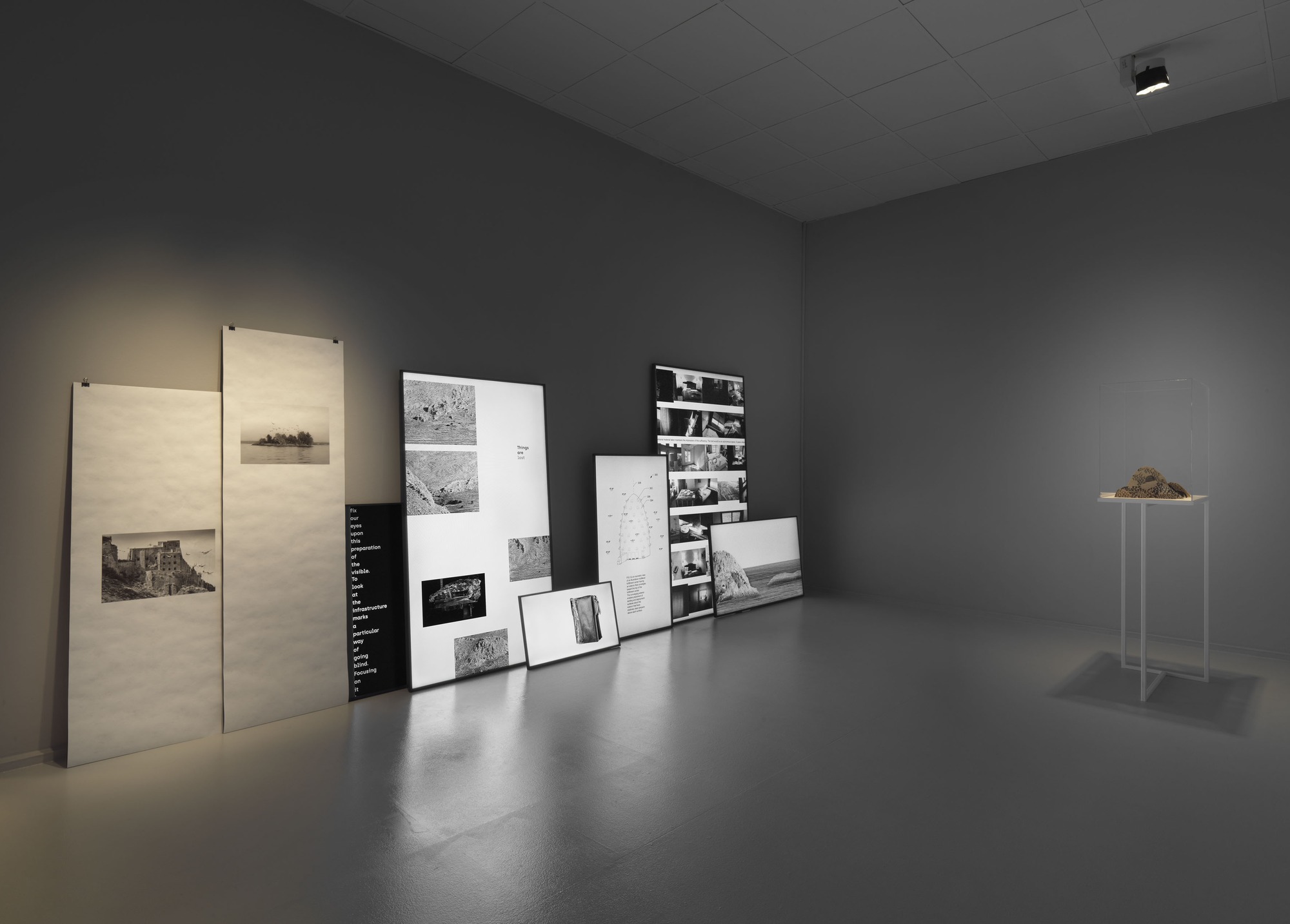Aristide Antonas. The Pulp of Things
15 Sep - 11 Nov 2022

Aristide Antonas. The Pulp of Things, exhibition view Neuer Berliner Kunstverein (n.b.k.), 2022 © Photo: n.b.k. / Jens Ziehe
n.b.k. Showroom
Aristide Antonas designs imaginary places in urban space that address social and environmental challenges of our time through community-oriented approaches. Combining texts, photographs, videos, and digital simulations, and with the help of archaeological processes and legal references, his works often take the form of collage-like architectural models. They are thought experiments at the juncture of theory and practice that use concrete urban situations as a starting point to examine the consequences of neoliberal market mechanisms for private and public spaces.
In his first institutional solo exhibition in Germany, Antonas continues his critique of the growing privatization of urban infrastructures. The starting point for his reflections is the increasingly dense network of online retailers, delivery services, and co-working facilities, which promotes the illusion of the private home as an “autonomous cell.” Goods seem readily available at any time, and there is rarely a reason to leave the living area, which only contains the most necessary things.
Aristide Antonas designs imaginary places in urban space that address social and environmental challenges of our time through community-oriented approaches. Combining texts, photographs, videos, and digital simulations, and with the help of archaeological processes and legal references, his works often take the form of collage-like architectural models. They are thought experiments at the juncture of theory and practice that use concrete urban situations as a starting point to examine the consequences of neoliberal market mechanisms for private and public spaces.
In his first institutional solo exhibition in Germany, Antonas continues his critique of the growing privatization of urban infrastructures. The starting point for his reflections is the increasingly dense network of online retailers, delivery services, and co-working facilities, which promotes the illusion of the private home as an “autonomous cell.” Goods seem readily available at any time, and there is rarely a reason to leave the living area, which only contains the most necessary things.

